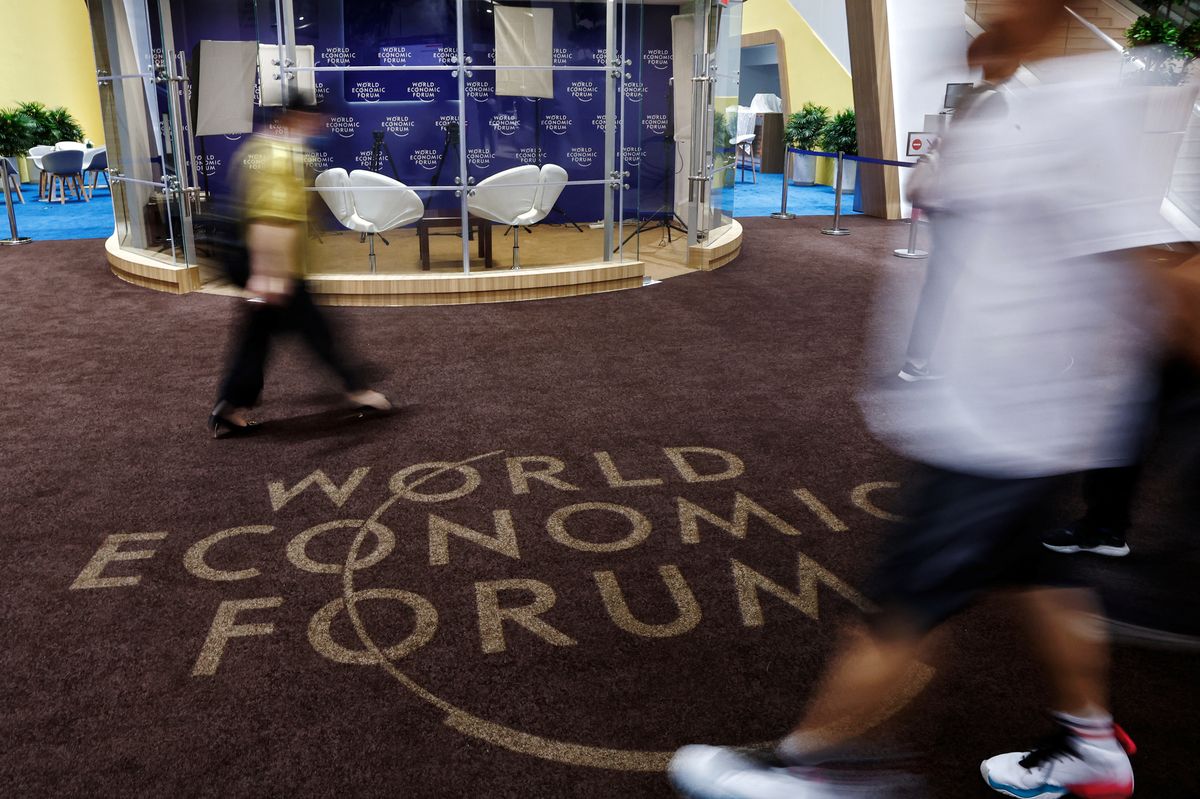China hosts the Summer Davos 2023 – the World Economic Forum’s 14th Annual Meeting of the New Champions
The World Economic Forum (WEF) has a summer conference every year, often dubbed the “Summer Davos."

A few minutes every morning is all you need.
Stay up to date on the world's Headlines and Human Stories. It's fun, it's factual, it's fluff-free.
The backstory: The World Economic Forum (WEF) has a summer conference every year, often dubbed the “Summer Davos,” referring to another WEF annual meeting held every January in Davos, Switzerland. It’s not in Davos, though, unlike the winter conference. While the Winter Davos conference has been held annually for over 50 years, the summer conference is only in its 14th year. It’s called the Annual Meeting of New Champions.
More recently: Since the Davos summit in January, the global economy has been through a lot. This includes the Chinese economy, especially as the country tries to recover from the pandemic after moving away from its zero-COVID policies. Premier Li Qiang has been working on attracting foreign businesses and investments to bring a boost to the economy. Investors seem to be a bit hesitant, especially as tensions between China and the US remain a little shaky.
The development: On Tuesday, the Summer Davos is kicking off in Tianjin, China. This is the first time for the event to be held in person in three years. Li will make the opening speech to start the summit, which is themed “Entrepreneurship: The Driving Force of the Global Economy.” The prime ministers of Barbados, Mongolia, New Zealand and Vietnam are there, and so are around 1,500 other international leaders, investors and entrepreneurs. One of the biggest delegations (24 people) is being sent by Saudi Arabia as China establishes more ties with the Middle East. This is also the first time the Summer Davos forum will be fully powered by green energy, saving about 320 tons of standard coal and 800 tons of carbon dioxide.
Key comments:
“Since the word ‘entrepreneurship’ is put at the center of the forum, we can probably expect the premier to set the tone for a long-awaited reform package aimed at supporting the private sector,” said Xu Tianchen, an economist with the Economist Intelligence Unit.
“AMNC comes as converging so-called polycrises continue to impact the global economy,” said the World Economic Forum on its website. “Moreover, an increasingly competitive geopolitical and geoeconomic environment is further straining governments and private industries as they recover from the COVID-19 pandemic.”
“The annual conference will put a core emphasis on rebooting innovation and entrepreneurship in Asia and to look at possible ways for the economy to recover,” said an official statement on Monday.




Comments ()